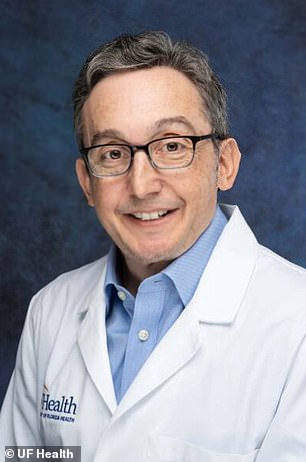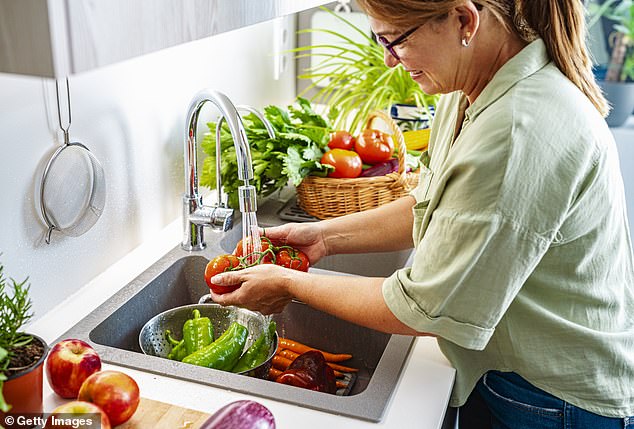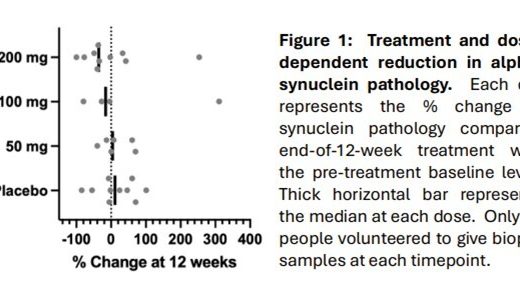Two doctors at the cutting edge of Parkinson’s disease have made the bombshell claim the condition may be preventable, giving hope to millions of patients and their families.
Dr Ray Dorsey and Dr Michael Okun say simple changes in the food we eat, the water we drink, the air we breathe and the lifestyles we lead can win the battle against the so-far incurable disease.
Published in full for the first time in their new book, The Parkinson’s Plan: A New Path to Prevention and Treatment, their ‘Parkinson’s 25’ is the most detailed checklist of steps ever created to enable anyone to lower their risk of the disease, and the Daily Mail can now exclusively reveal five of them.
One American is diagnosed with the disease every six minutes, and 100 Americans die from it every day.
Michael J Fox is one of the most high-profile patients, but Parkinsonian disorders – including dementia with Lewy bodies and progressive supranuclear palsy (PSP) – have also blighted the lives of celebrities including Robin Williams, Muhammad Ali, Linda Ronstadt and, most recently, Morten Harket from the Norwegian musical group A-ha.
Both doctors, Dorsey and Okun, have spent their professional lives studying brain diseases.
Dorsey directed the Parkinson’s disease division at Johns Hopkins and organized the first ever symposium on the brain and the environment in 2024.
Okun directs the University of Florida’s Norman Fixel Institute for Neurological Disease and has, for the last almost 20 years, served as the medical director and advisor for the Parkinson’s Foundation.



‘For too long, Parkinson’s has been fundamentally misunderstood,’ they said. ‘The majority of the public, and even many scientists, still view the disease as an inevitable consequence of aging. In their eyes, the disease reflects increasing longevity and the unfortunate consequence of genetics. They are mistaken.’
The doctors identify the research that has established the more likely cause of the rise in Parkinson’s: the pesticides in our food and farms, the industrial toxins in the water we drink and the hidden particles in the air we breathe.
Armed with that knowledge, they say, a few simple lifestyle changes – from using water and air filters to rolling up your car windows in traffic – can reduce exposure and actually prevent the onset of Parkinson’s.
They believe their recommendations can even be effective with people who have a family history of the disease, and those who have already started to show symptoms.
‘It is never too late to get started,’ they said.
‘We take a lesson from smoking. For smokers, cessation helps all regardless of age, and the benefits accrue fast – 20 minutes after the last cigarette smoked, an individual’s heart rate returns to normal.




‘A day later, the risk of heart attack lowers.
‘By nine months, coughing is reduced, and a decade later, the risk of lung cancer is halved.
‘The same could be true for environmental toxicants and Parkinson’s.
‘Let’s stop waiting passively for Parkinson’s to surface. Let’s apply what we have learned and begin preventing the disease now.’
Below are five of their 25 steps to prevention.
Wash your produce (even if it’s organic)
Pesticides have made their way into our food supply. In 2024, Consumer Reports found that remnants of pesticides posed a significant health risk in 20 percent of common foods that it examined, including blueberries, bell peppers and potatoes.
Purchasing organic produce, dairy products and meat can all help reduce exposure. However, even organic produce can have unsafe pesticide residues.
So what can you do?
Regardless of whether you buy organic or conventional fruits and vegetables, wash them. Use water and possibly a vegetable wash, because, like dirt, many pesticides do not dissolve in water. These washes are available in many grocery stores.


Vinegar and salt solutions are good options too.
To determine what levels of pesticides are safe, the US Department of Agriculture measures them after food has been washed with water for 15 to 20 seconds. If that is their practice, yours should be even longer.
Another way to reduce your overall exposure to pesticides without buying entirely organic produce is to consult the reports of the Environmental Working Group, which lists foods with a lot of exposure (the Dirty Dozen) and those with much less (the Clean Fifteen).
Another good way to learn what pesticides are being used is to go to a farmer’s market or join a community-supported agricultural farm where you can speak to the farmers who grow the crops
Don’t go to a grocery store near a dry cleaners
Perchloroethylene (PCE), the dry-cleaning chemical, can readily spread beyond the walls of a dry cleaner.
PCE dissolves in fat. In Germany, the chemical has been found in dairy products at supermarkets near dry cleaners – the levels at those shops were two to 20 times the levels found in those farther away.
Germany now prohibits supermarkets from being located close to dry cleaners.
So, next time you go shopping at your local market, look around at the neighboring businesses.
Have a cup of coffee
Research has repeatedly demonstrated that caffeine consumption is associated with a decreased risk of Parkinson’s.
Caffeine may protect the dopamine-producing nerve cells from the damage that results from exposure to toxicants.
The benefits appear to be present regardless of your beverage of choice (coffee or tea) but are not present with decaffeinated drinks.
Of course, caffeine has its own health risks, such as spurring on anxiety and headaches. But thanks to the research, you now have another reason to enjoy your morning cup of joe.

Exercise
In his best-selling book, Outlive, Dr Peter Attia wrote: ‘I now tell patients that exercise is, full stop and hands down, the best tool we have in the neurodegeneration prevention tool kit.’
Exercise may improve the function of the mitochondria, the energy-producing parts of cells, that are damaged by toxicants.
Physical activity also releases growth factors in the brain that protect nerve cells, including the dopamine-producing ones.
Vigorous exercise can lower the risk of developing Parkinson’s, and moving every day is also beneficial for those who already have the disease. A recent study found that six months of aerobic exercise (riding a stationary bike at least three times weekly, for example) reduced brain atrophy and slowed disease progression.

Golf with caution
While no studies, to our knowledge, have examined rates of Parkinson’s among avid golfers, one study in 1996 looked at the death certificates of golf course superintendents.
They found that these workers who commonly use pesticides to keep golf courses weed-free had twice the risk of dying due to a nervous system disorder than the general population.
What are the 25 million golfers in the US and 67 million worldwide to do?
Ask your favorite course or club what pesticides they use and when they spray, encourage them to use less, and have them consider safer alternatives.
In the interim, avoid playing on courses just after they have been sprayed, and don’t lick your golf ball.
The full list of 25 actions is published in The Parkinson’s Plan: A New Path to Prevention and Treatment by Ray Dorsey MD and Michael S Okun MD, PublicAffairs.



